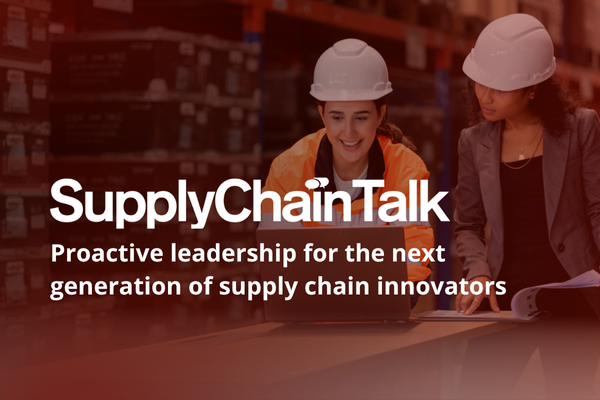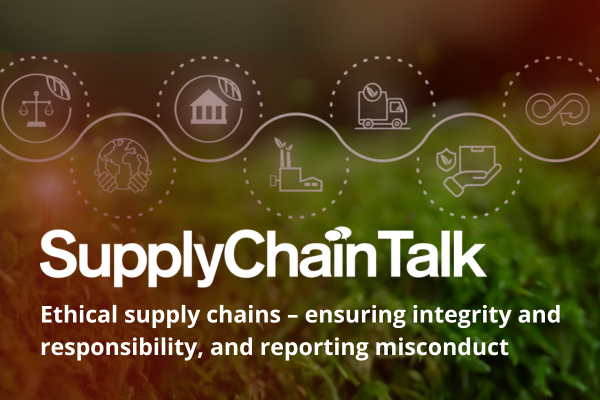SupplyChainTalk: Empowering vendors - best practices for supply chain training
On 24 September 2025, SupplyChainTalk host Ana Maria Velica was joined by Giovanni Leonardi, R&D and Operations Project Manager, Eurotherm by Watlow; Amy Xue, Head of Supply Chain, Dishman Carbogen Amics (Europe) Ltd; and Muhammad Azmat, Programme Director, MSc Supply Chain Management & MSc Engineering, Aston University.
Views on news
Stagecoach is rolling out a free sustainability training programme to equip its top 300 suppliers with the knowledge and tools to embrace greener practices. Teaming up with the United Nations Global Compact (UNGC) UK Network, Stagecoach aims to align its vast supply chain with environmental, social, and governance (ESG) principles. The Sustainable Suppliers Training Programme will provide in-depth education on sustainability fundamentals, including the UN’s 17 Sustainable Development Goals (SDGs) and internationally recognized sustainability reporting standards.
Building effective training programmes
Vendor portals, where companies can manage their relationships with their suppliers, are an emerging trend now. One of the major barriers to implementing a vendor portal, however, is that suppliers may be reluctant to onboard. But by building closer relationships with suppliers first, they may become less sceptical and more eager to join. Companies, for example, often organise open days for their network of suppliers to get them on board. In highly regulated industries, this process unfolds naturally as a pharmaceutical company, for example, familiarises its suppliers with regulations and requirements.
Metrics that supplier training programmes can be measured against include product quality, on-time delivery, price competitiveness and the agility of the business. Supplier assessment is typically an annual exercise carried out by procurement and QA teams with findings fed back to suppliers. It’s also crucial that the objective of the training and existing industry standards inform the programme. Suppliers may become proactive in improving their practices as a result of the training, which is to everyone’s advantage. Training should be just one component of supplier management, though and is only effective if suppliers also feel supported and valued. A supplier network built on trust can save up to 20% of the costs and decrease disruption up to 50% – according to a McKinsey study.
The panel’s advice
- The AIM-Progress Supplier Capability Building Programme uses collaborative, member-led initiatives to enhance responsible sourcing in fast-moving consumer goods (FMCG) supply chains.
- Supplier networks can also be used for sharing ideas about managing disruptions or economic challenges which affect most its members.
- Let your suppliers know what value they bring to the supply chain.

Business Reporter Team
Most Viewed
Winston House, 3rd Floor, Units 306-309, 2-4 Dollis Park, London, N3 1HF
23-29 Hendon Lane, London, N3 1RT
020 8349 4363
© 2025, Lyonsdown Limited. Business Reporter® is a registered trademark of Lyonsdown Ltd. VAT registration number: 830519543





